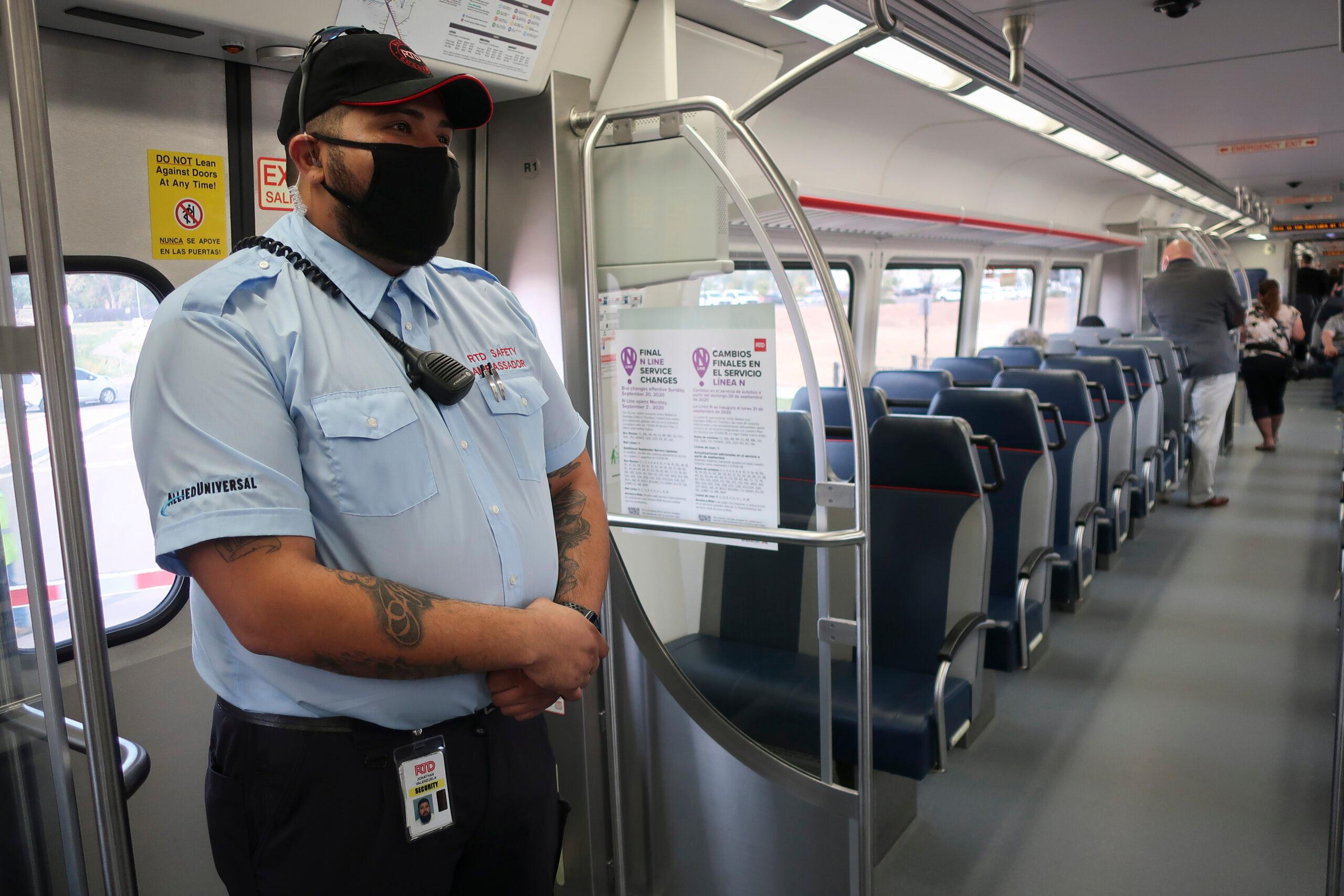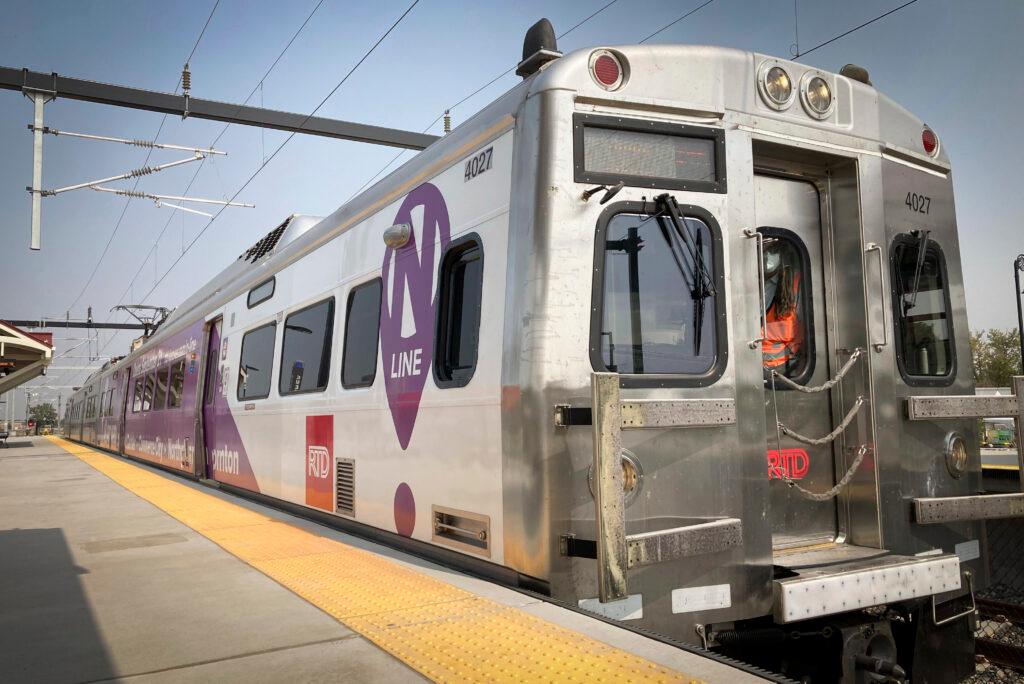
One of the first things RTD’s interim General Manager Paul Ballard noticed when he rode the agency’s commuter rail lines were the armed security guards stationed on every train checking tickets.
“It's very different to have security guards doing that type of work. So I made a mental note to check into that,” said Ballard, who took over RTD’s top job earlier this year after a decades-long career at transit agencies across the country.
Federal regulations require two workers on every commuter rail train, traditionally an operator who drives the train and a conductor in the passenger area. But for decades, RTD had used armed security across its system. So it used an armed guard as that required second person when it opened the A, B and G lines starting in 2016.
“It's been a really great model, as far as not just addressing the [Federal Railroad Administration] regulatory requirement but having the enhanced security physical presence on the train,” Ballard’s predecessor Dave Genova said in 2018.
But on RTD’s fourth commuter rail line, the 13-miles N Line between Denver and the northern suburbs that opens Monday, it will follow the industry standard.
“We're going with more of a traditional conductor, who is really focused on the passengers checking fares, checking tickets, making sure everything is safe. Because we don't really feel we need our armed officers on every train,” Ballard said Thursday.

The conductors — or transit safety ambassadors, as RTD calls them — will still carry radios and can call for backup from law enforcement — either RTD’s own, or from local jurisdictions — when the need arises. But Ballard said conductors are equipped to deal with “99.5 percent” of any issues that arise on the train.
Armed security officers will board trains randomly, much like they do now on RTD’s separate light rail system. Conductors on commuter rails will check fares, but won’t have the power to issue citations.
"It's going to be more of an educational process,” said Bob Grado, RTD’s chief of police.
The 19 transit safety ambassadors on the N Line work for Allied Universal, which also provides the bulk of RTD’s security services. That contractor has come under criticism from members of the public after one of its officers brutally beat an RTD passenger two years ago in a bathroom at an underground bus facility near Union Station.
That incident was one reason board member Shontel Lewis ran an unsuccessful resolution this summer that would have cut Allied’s contract altogether and added outreach workers. Lewis said Thursday the N Line safety ambassadors are a “great step in the right direction.”
Ballard said the shift on the N Line away from armed guards will likely please some, but said that didn’t influence his decision.
"I happen to be very supportive of the folks we have in the RTD police and our transit security officers,” he said. “They are well trained. There was an unfortunate incident over two years ago, and I do truly believe that was an aberration.”
Ballard said he will recommend that RTD switch to conductors across its entire commuter rail system, provided that it goes well on the N Line. But that decision will likely be up to his successor, Debra Johnson, who is currently in contract negotiations with the agency’s board of directors.








